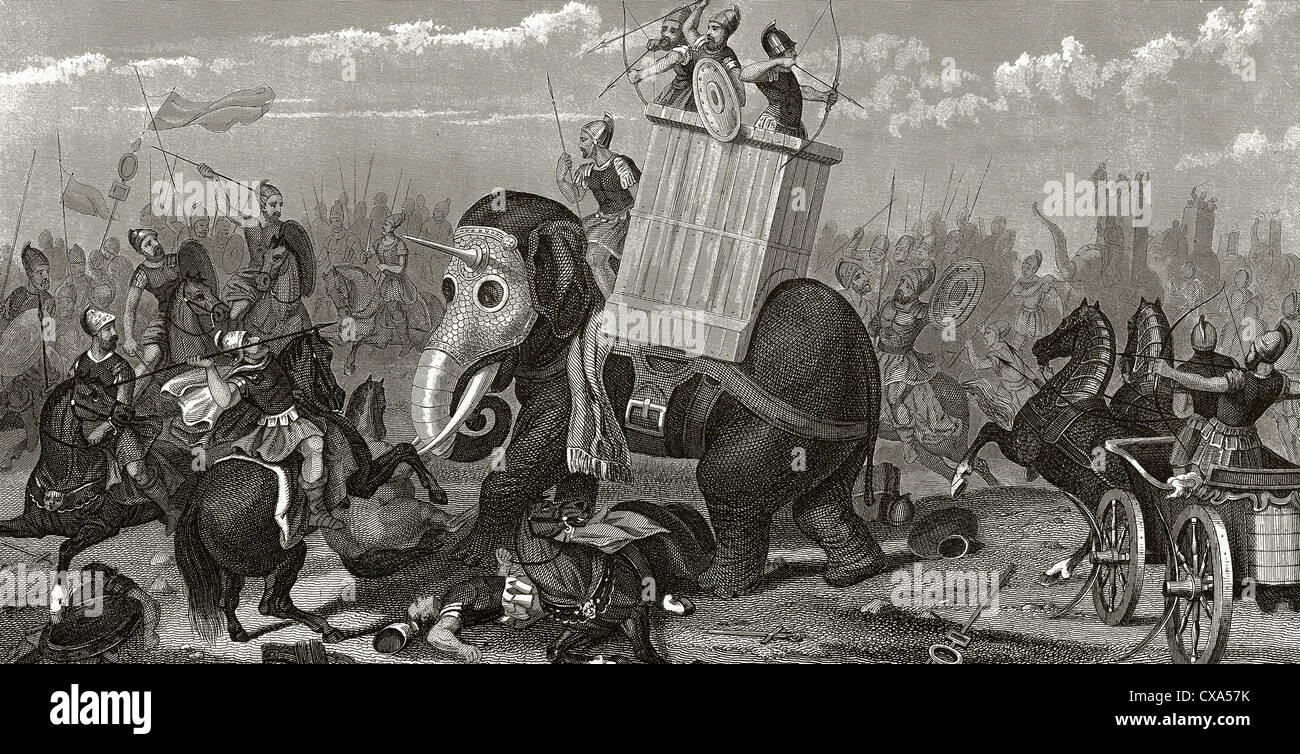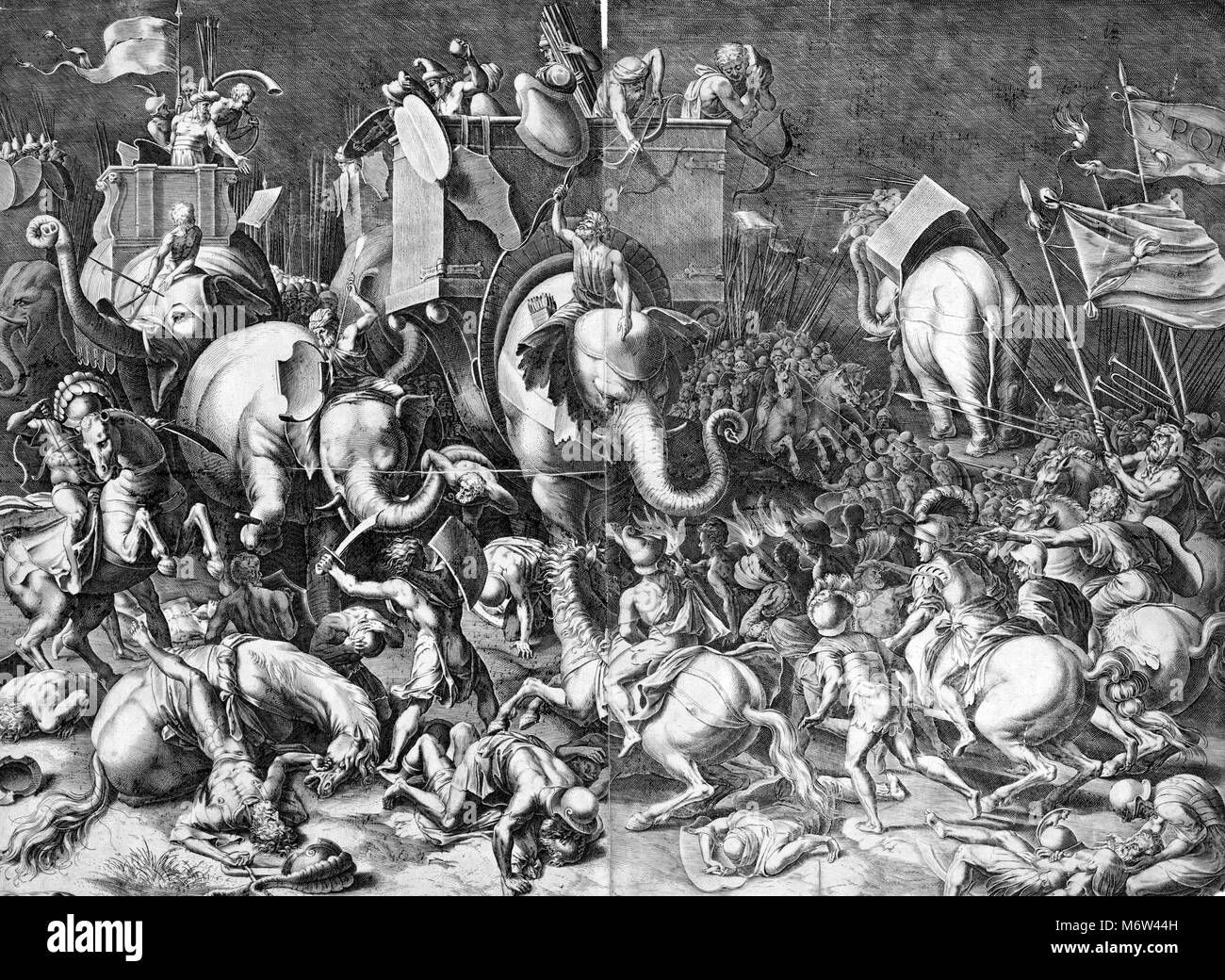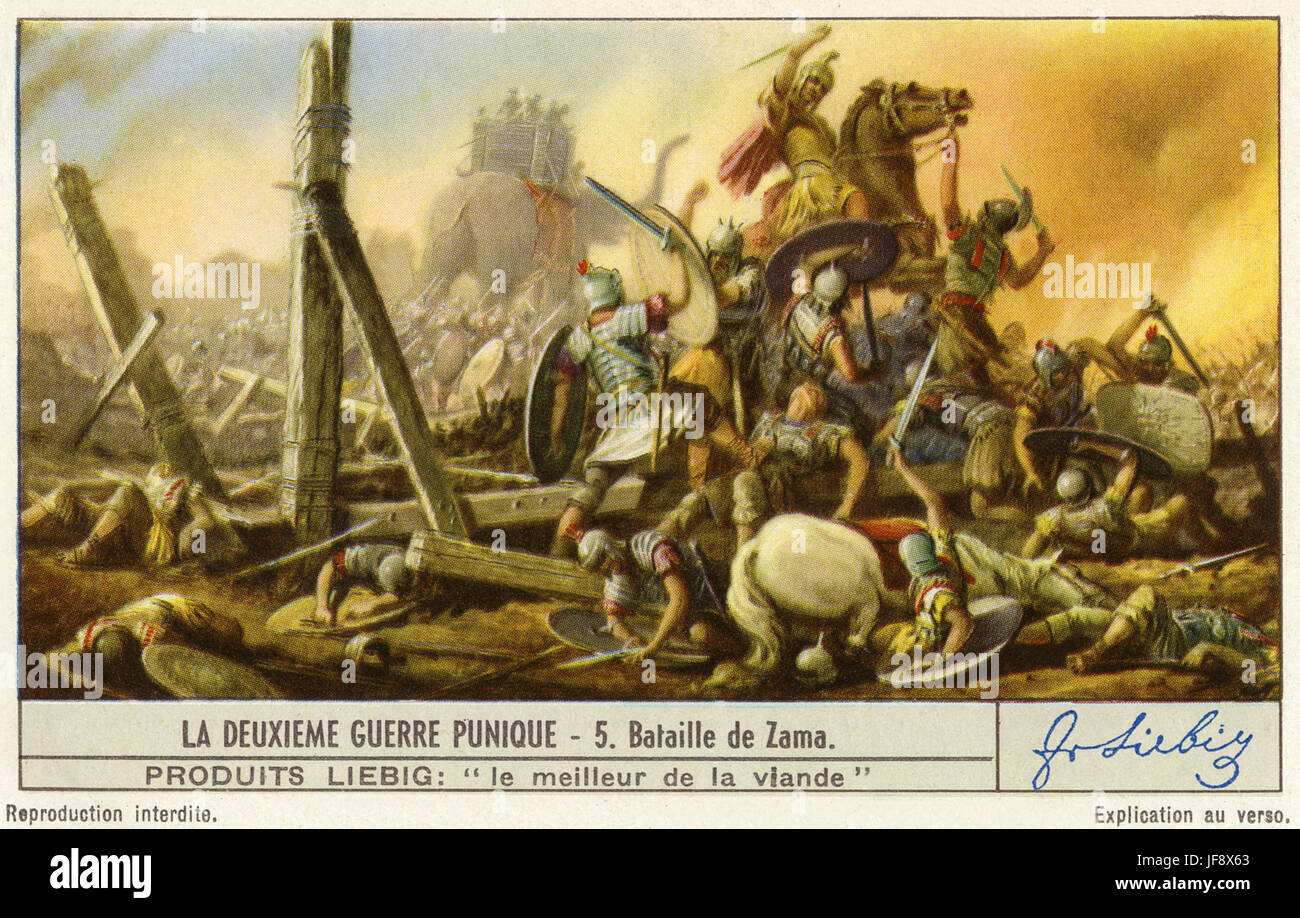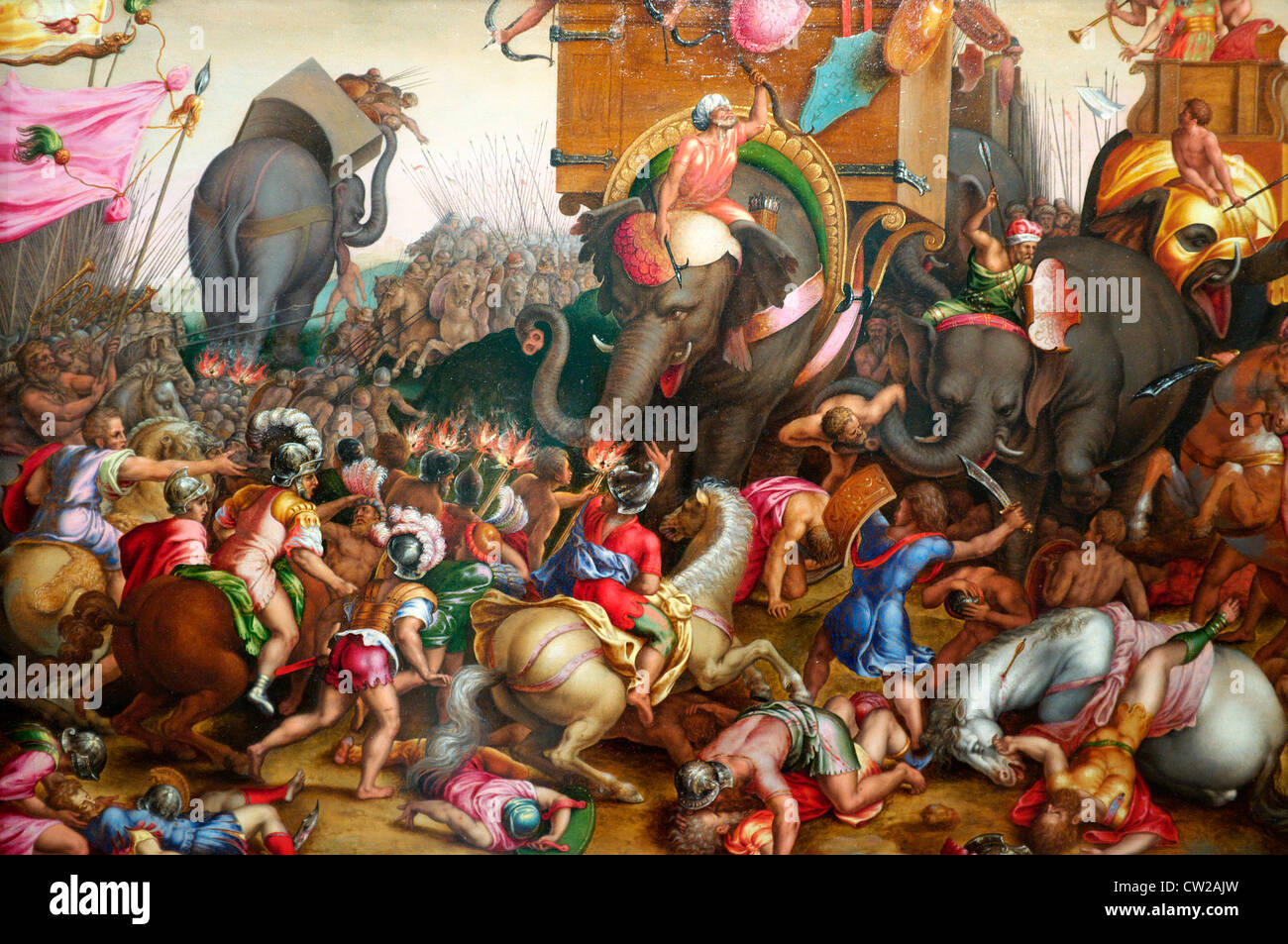The Battle of Zama: A Turning Point in the Second Punic War
Related Articles: The Battle of Zama: A Turning Point in the Second Punic War
Introduction
In this auspicious occasion, we are delighted to delve into the intriguing topic related to The Battle of Zama: A Turning Point in the Second Punic War. Let’s weave interesting information and offer fresh perspectives to the readers.
Table of Content
The Battle of Zama: A Turning Point in the Second Punic War

The Battle of Zama, fought in 202 BC in North Africa, stands as a pivotal moment in the Second Punic War, a conflict that pitted the Roman Republic against the Carthaginian Empire. The battle, a decisive Roman victory, effectively ended Carthaginian ambitions for dominance in the Mediterranean and marked the beginning of Rome’s rise to global power.
A Clash of Titans: The Armies of Rome and Carthage
The battle pitted two formidable armies against each other. The Roman army, led by Publius Cornelius Scipio Africanus, was a disciplined and well-equipped force, renowned for its legions’ tactical flexibility and resilience. Scipio’s army consisted of approximately 40,000 soldiers, including legions, auxiliary troops, and allied cavalry.
The Carthaginian army, under the command of Hannibal Barca, was equally formidable. Hannibal’s forces, numbering around 36,000, were a diverse mix of Carthaginian citizens, Numidian allies, and mercenaries. Hannibal’s army was known for its innovative tactics, particularly the use of elephants in battle.
The Strategic Significance of the Battle of Zama
The Battle of Zama took place in the heart of North Africa, a strategic location that held immense importance for both sides. For Rome, a victory at Zama would secure their control over the Mediterranean, ending the threat posed by Carthage. For Carthage, a victory would allow them to maintain their independence and potentially regain control of the Western Mediterranean.
The Battle of Zama: A Strategic Masterclass
The Battle of Zama is often considered a testament to Scipio’s military genius. Recognizing Hannibal’s strengths, Scipio devised a battle plan that exploited the weaknesses of the Carthaginian army. He deployed his legions in a tight formation, with the front lines composed of heavy infantry, supported by cavalry and archers on the flanks.
Hannibal’s strategy relied on his famed Numidian cavalry and the disruption caused by his war elephants. He hoped to break through the Roman lines, forcing them to retreat. However, Scipio anticipated this tactic and deployed his own Numidian cavalry, under the command of Masinissa, to counter the Carthaginian horsemen.
The Battle: A Turning Point
The battle itself was a brutal and bloody affair. The Carthaginian elephants, initially successful in disrupting the Roman lines, were eventually driven back by the Roman infantry. Scipio’s legions, utilizing their superior discipline and training, held their ground against Hannibal’s infantry.
The decisive moment arrived when Scipio ordered his cavalry to charge, flanking the Carthaginian army. The Roman cavalry, under the leadership of Masinissa, overwhelmed the Carthaginian horsemen, leading to a rout. Hannibal’s army, demoralized and defeated, was forced to retreat.
The Aftermath: A New Era Begins
The Battle of Zama marked a turning point in the Second Punic War. Carthage, weakened and defeated, was forced to accept a humiliating peace treaty. Hannibal was forced to flee, ending his military career. Rome, victorious and emboldened, emerged as the dominant power in the Mediterranean.
The Battle of Zama: A Legacy of Military Genius
The Battle of Zama stands as a testament to the military genius of Publius Cornelius Scipio Africanus. His strategic foresight, innovative tactics, and ability to adapt to changing battlefield conditions secured a decisive Roman victory. The battle not only ended the Second Punic War but also laid the foundation for Rome’s rise to global power.
FAQs
Q: What was the significance of the Battle of Zama?
A: The Battle of Zama marked a decisive turning point in the Second Punic War, effectively ending Carthage’s ambitions for Mediterranean dominance and paving the way for Rome’s rise to global power.
Q: Who were the key figures in the Battle of Zama?
A: The key figures were Publius Cornelius Scipio Africanus, the Roman commander, and Hannibal Barca, the Carthaginian commander.
Q: What were the main tactics employed by each side?
A: Scipio relied on a disciplined formation of Roman legions, supported by cavalry and archers, aiming to exploit Hannibal’s reliance on elephants and cavalry. Hannibal sought to break the Roman lines using his Numidian cavalry and elephants, hoping to force a retreat.
Q: What were the consequences of the Battle of Zama?
A: The battle led to a Carthaginian defeat, a humiliating peace treaty, and the end of Hannibal’s military career. Rome emerged as the dominant power in the Mediterranean, paving the way for its future expansion.
Tips
- Understand the strategic context: The Battle of Zama was not an isolated event but a culmination of years of conflict. Understanding the broader context of the Second Punic War is crucial for appreciating the battle’s significance.
- Focus on the key figures: Studying the military strategies and personalities of Scipio Africanus and Hannibal Barca provides valuable insights into the battle’s dynamics.
- Analyze the tactics: Examining the battle plan and tactics employed by both sides helps in understanding the reasons behind the Roman victory.
- Consider the long-term consequences: The Battle of Zama had profound implications for the future of both Rome and Carthage. Explore the lasting impact of the battle on the course of history.
Conclusion
The Battle of Zama remains a pivotal event in military history, showcasing the importance of strategic planning, tactical brilliance, and the ability to adapt to changing battlefield conditions. The battle’s legacy extends far beyond the immediate conflict, marking a turning point in the rise of Rome and shaping the geopolitical landscape of the ancient world. The Battle of Zama serves as a reminder of the power of military genius and the enduring impact of decisive battles on the course of history.








Closure
Thus, we hope this article has provided valuable insights into The Battle of Zama: A Turning Point in the Second Punic War. We hope you find this article informative and beneficial. See you in our next article!